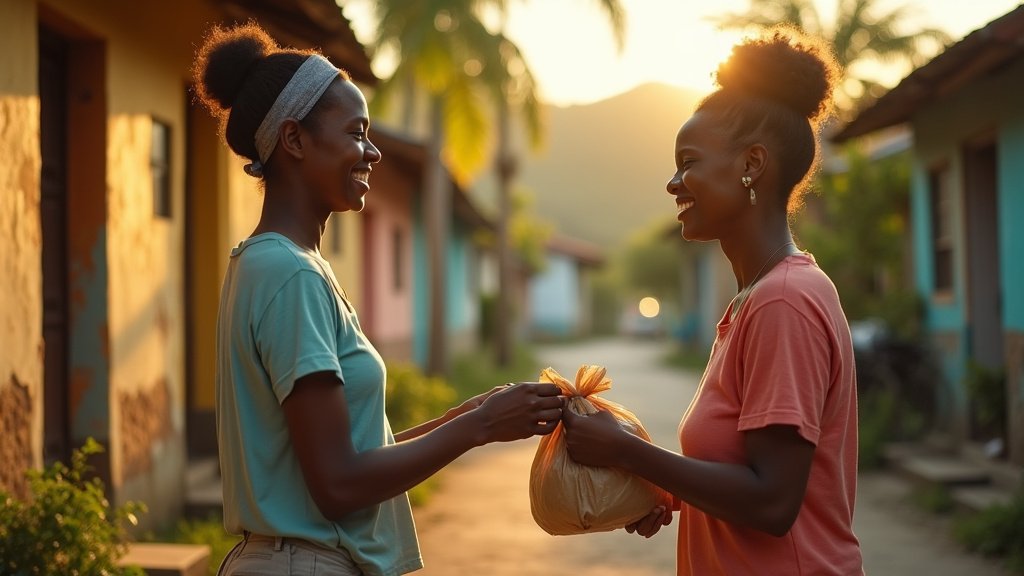Jamaica has captured the global spotlight, topping the World Happiness Gallup Report 2025 for being the country where individuals are most likely to help a stranger. This remarkable achievement places the Caribbean nation at the forefront of spontaneous acts of kindness, even as it highlights a nuanced global trend where personal generosity often supersedes formal charitable donations.
A Global Recognition for Interpersonal Kindness
The findings, derived from data collected between 2022 and 2024 through the Gallup World Poll and the World Risk Poll (2019), place Jamaica at the apex of a ranking measuring direct assistance to unfamiliar individuals. While the nation holds a respectable 73rd position overall on the broader Cantril Ladder of happiness, its first-place finish in helping strangers underscores a powerful aspect of its societal fabric. This news is a significant international headline, showcasing a profound cultural trait.
Following Jamaica, countries like Liberia and Sierra Leone also demonstrate exceptionally high levels of willingness to help others in need. These nations, alongside others such as Nigeria and Kenya, frequently appear in the top echelons for helping strangers, indicating a widespread pattern of community-oriented support across diverse regions.
The Generosity Gap: Personal Acts vs. Institutional Giving
A striking contrast emerges when comparing the propensity to help strangers with engagement in formal charitable giving. Jamaica, Liberia, and Sierra Leone, despite their top rankings in interpersonal generosity, fall significantly lower—over 80 places behind—in global rankings for contributions to formal charities. Similarly, Nigeria and Kenya, while ranking high for assisting strangers, are near the bottom for financial contributions to organizations.
This divergence suggests that while the human desire to help is strong, its expression varies greatly depending on societal structures and trust levels. In countries where institutional trust might be lower, and formal systems like law enforcement or organized charities may be perceived as less reliable or accessible, people often turn to one another for support. This reliance on personal connections for assistance becomes a primary channel for generosity.
Cultural Reliance on Community and Connection
Researchers and report analysts suggest that this pattern reflects a deeper cultural reliance on community and human connection in societies where formal structures may not always adequately meet immediate needs. In places like Jamaica, generosity is often viewed not just as a moral imperative but as a practical mechanism for fostering social cohesion. Helping a stranger can thus be seen as both an act of compassion and a testament to trust within the community itself.
This cultural context means that acts of kindness tend to occur more directly through personal interactions, rather than solely through institutional channels. As the World Giving Index has previously indicated, in many regions, helping a stranger is the most common way people express their generosity.
Global Benevolence Amidst Shifting Trends
The World Happiness Gallup Report 2025’s findings on helping strangers come against a backdrop of global shifts in charitable behavior. Data from Gallup indicates a slight decline in overall benevolent acts worldwide in 2024, with a six-percentage-point drop in adults reporting they helped a stranger in the past month compared to the previous year. Reports of financial donations and volunteerism also saw decreases.
However, the underlying willingness to assist individuals in need, particularly strangers, remains a significant and enduring aspect of human behavior, often demonstrating resilience even amidst economic pressures or philanthropic fatigue. The consistent high rankings for countries like Jamaica in this specific metric underscore the powerful role of cultural norms and community interdependence in shaping how generosity is enacted.
In conclusion, Jamaica’s leading position in helping strangers offers a valuable perspective on global generosity. It highlights that while formal charitable giving is an important measure, the spirit of kindness is profoundly alive and often most potent in the direct, personal connections forged within communities. This important news from the World Happiness Gallup Report 2025 serves as a reminder of the diverse and deep-rooted ways humanity expresses care and support for one another.

